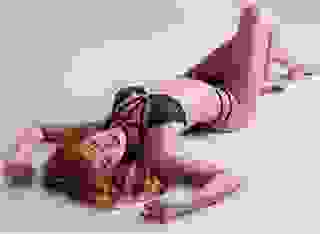- Non-Erotic
- Perpetual motion
Note: You can change font size, font face, and turn on dark mode by clicking the "A" icon tab in the Story Info Box.
You can temporarily switch back to a Classic Literotica® experience during our ongoing public Beta testing. Please consider leaving feedback on issues you experience or suggest improvements.
Click hereScene: An English village. Time: The 1950s.
* * *
Mr Abbott, the headmaster of Nutcombe Junior School for Boys, held a Bachelor of Science degree in physics from the University of Cambridge, where he had studied at the feet of such giants as Rutherford and Wilson. He had resigned himself to the humdrum duties of his present position, but still he nursed an inner ambition to instil in some of his pupils, if only one or two, a greater understanding of the inexorable laws which govern the universe, and an appreciation of the beauty of scientific principles. To this end he would from time to time take a class himself.
One such occasion occurred in the last week of term before the summer vacation. The senior class had completed the syllabus for the year and had all sat the scholarship examination, the results of which would not be available for a few weeks. The headmaster had it in mind to introduce them to the concept of the conservation of energy and the laws of thermodynamics. He did not, of course, use such terms to them, nor did he try to do more than lightly scratch the surface of the subject, but he did, in the simplest and most homely terms he could muster, explain to them that in this world, as far as mortal man could understand it, no work could be done without the input of energy, and that there was absolutely no way to create energy out of nothing. The theme around which he wove these topics was the impossibility of making a perpetual motion machine. He described some of the attempts that had been made, and the flaws and fallacies which they all inevitably contained.
Satisfied that his discourse had achieved all that might be expected with pupils of the age and background of those before him, he asked, "Does anyone have a question about any of the things I have been telling you?" While the rest of the class sat in stupefied silence, Billy Enright raised his hand.
"Yes, Enright, what is your question?"
"Please, Sir, what would happen if someone did invent a perpetual motion machine?"
The headmaster sighed. He had just spent half an hour explaining why such an achievement was utterly and totally impossible. He knew that the pedagogical principles he tried to follow required him to reply to any question, however asinine, in an objective and dispassionate manner, but as that would, in this case, entail repeating in its entirety the lesson he had just finished, he fell back instead to the last resort of the baffled teacher, sarcasm.
"If you invented a perpetual motion machine, Enright, I promise you that it would make you the most famous scientist in the whole history of the world."
Billy understood the words, but failed to perceive their irony. He had the utmost faith in the honesty of the headmaster. He heard a promise of fame and fortune without any tedious requirement to study or work for it. A new era dawned and an ambition was born. He had a free ticket to success. All he had to do was to invent a perpetual motion machine.
* * *
In the second week of the summer holidays, Miss Knightley, the headmistress of Nutcombe Mixed Infants School, was working in her garden when she became aware of curious movements on the other side of the hedge. The lane which ran past her cottage on that side had a slight incline, and twice she had seen out of the corner of her eye something whizzing silently down the hill. Intrigued, she rose from weeding a flower bed, and looked over the hedge. Trudging up the hill towards her, a soapbox buggy in tow, was Billy Enright. She remembered her former pupil well, as one who persistently pulled against the traces, stubbornly pursuing his own path to knowledge in unusual and often entertaining ways. She surmised, correctly, that he had been making repeated runs down the hill.
"Good morning, Billy. And what are you up to on this fine summer's day?"
"Morning, Miss," Billy replied wearily. "I'm trying to make my buggy go faster. I need it as part of my invention. I'm making a perpetual motion machine."
"Oh, Billy, you're wasting your time. You'll never succeed in doing that."
As soon as she had spoken, she regretted her words. How could she, dedicated as she was to the encouragement of aspiration, have uttered such a negative and dispiriting sentiment? A kindly Fate gave her an opportunity to redeem her error, for a large flying beetle had been whirring and droning about Billy's head, and he had been too preoccupied with ducking and flapping his arms to hear what she had said.
"I'm sorry, Miss. What did you say?"
"I said, Billy, that that sounds very interesting. Why don't you come in and tell me all about it? I've got some lemonade."
They sat on the grass, and between gulps of lemonade and mouthfuls of caraway seed cake Billy described how far he had got in his efforts to confound the world of physics. As he spoke, Miss Knightley found her amused tolerance giving way to unexpected admiration. Billy told of his perception, early on in his experiments, that circular motion must be involved.
"Stands to reason, don't it, Miss, you can't go on forever in a straight line, 'cause you'll run out of room."
He was concentrating on magnetism and gravity as two likely sources of inexhaustible motive power. He had spent hours in the sandpit at the recreation ground trying to model a circuit which was downhill all the way, but in vain. Neither the butcher's boy nor the baker's boy knew of any rounds which were predominantly downhill. They had assured him that there were some routes which were unmistakably uphill both going and returning, but there were none that were downhill in both directions. To provide materials for working models, he had augmented the remnants of his Meccano set by disassembling every tinplate clockwork toy inherited from his eldest brother. He believed that the "Made in Japan" labels rendered this more an act of patriotism than of vandalism. He had made a freewheeling model car which could be drawn along by the attraction of a magnet held in front of it. He had tried to mount a jib on the car to dangle a magnet in front, but the car was too small to bear the weight. He had realised that metal attracted the magnet just as much as the magnet attracted metal, so he tried mounting the magnet on the car and dangling a small piece of metal from the jib, but the model failed to move. He thought he had made a breakthrough when he conceived of a clockwork car whose driving wheels were also coupled to the key, so that it rewound itself as it went. He had constructed such a model, but to his bitter disappointment it too failed to move.
"Do you know, Miss," he confessed, "I'm beginning to think that there's no such thing as a perpetual motion machine that works."
Miss Knightley's heart leapt in her chest. Cautiously she asked, "Why do you say that, Billy?"
"Well, Miss, take a car that winds itself up as it goes. If the wheels are turning the key to wind the spring, and the spring is turning the wheels to make it go, what's the point of the spring? You might just as well do away with it and expect the wheels to turn the wheels, and that would be daft, wouldn't it?"
"Oh, Billy," Miss Knightley exclaimed with joy, "You are so clever to have discovered that for yourself. Here, have another piece of cake. So what are you going to do now, then?"
"I suppose I shall just have to give up," Billy said glumly. "I haven't got the stuff to try any more ideas." He assuaged his despair with a mouthful of cake.
"What stuff would you need, Billy?"
"Oh, bigger magnets, better wheels, wood to make bigger models, that sort of stuff."
"If you want to continue, Billy, I could be your assistant. I might be able to get that sort of stuff for you."
"Would it still be my invention?" Billy asked suspiciously.
Miss Knightley laughed. "Of course, Billy. You'll be the leader of the research project, and I shall be only your humble assistant. Our papers in the learned journals will all be published under your name."
Billy had no idea what she was talking about. "Well, all right then. Just so long as I'm the leader."
* * *
Billy soon discovered the advantages of having Miss Knightley on his team. Her position as a headmistress gave her access to resources he had not dreamed of possessing. She had only to utter the magic words "educational purposes" down the telephone to County Hall, and the next day a powerful magnet was delivered. The senior school's woodwork room became their workshop, and the tarmac playground their testing site. Billy moved his materials from his bedroom to the school. For days they laboured happily, devising, making, and testing. They welcomed the failure of each experiment, as it gave them the motive to try something else. Intoxicated with the thrill of the chase, they had no real wish for it to come to an end. They made an improved version of the clockwork car which wound itself up - or rather did not. They reconstructed some of the classic failures, including a wheel with weights on arms which hinged out to exert more leverage downwards and swung back inwards to offer less resistance upwards. They made a ramp up which a steel ball was to be drawn by a magnet, to fall through a hole and roll back down again, ad infinitum, and were delighted to find that any magnet powerful enough to pull the ball up was also too powerful to allow it to fall.
Miss Knightley had not enjoyed herself so much for many years, and when the day came that they had exhausted all their ideas for potential perpetual motion machines, she suggested another project. "You know, Billy, we never did get round to building a better buggy. Why don't we see if we can build the best darn buggy in Nutcombe?"
"Cor, yes, Miss, that'd be great!"
"Where should we start? What needs improving the most?"
"Well, what is really annoying is when you're whizzing down a hill, then something gets in the way, a cat or dog or something, and you have to slow down, then when it's gone, you've lost all that speed, and you have to wait for it to get going again. When you slow down or stop, why can't you save that speed, then when you're ready to go again, whoosh! off you go?"
"That's a jolly good idea, Billy. You can't make energy out of nothing, but you can do your best to save the energy you've got and not waste it unnecessarily."
"How can we do that, Miss?"
"Remember the car that was supposed to wind itself up? I think we can use some of the ideas we had for that. We could make a buggy which slows down by winding up a spring, then when you're ready to go, the spring gives you a push. Let's give it a try."
* * *
The buggy which Billy and Miss Knightley built was six feet long and had full-sized bicycle wheels, the rear pair fitted with fixed gears. The floor of the buggy was stepped down between the axles. Wondering where she might acquire a very large spring, Miss Knightley consulted Norman Bundy, a former pupil of hers who now worked for a clock making company. When he learned what they had in mind, he volunteered to make a suitable spring-driven energy-storage device from redundant clock parts.
When finished, Norman's engine consisted of a metal box about eighteen inches square and six inches high. On each side, in the bottom corner of the rear end, was a sprocket, of the sort commonly found on bicycles. Protruding from the top of the box at that end were two levers, one in each corner. One was marked "Stop/Go"; the other was marked "Free/Engaged." They fitted the device into the well of the buggy and connected the sprockets to the rear wheels with bicycle chains. The top of the box formed a low seat upon which two people could sit back to back.
Norman explained how the controls worked. "Inside the box is a large coil spring. This lever is the clutch. When it is in the 'free' position, the sprockets are disconnected from the spring and will turn without doing anything, so the buggy will be able to freewheel with little resistance." He pushed the buggy to and fro by hand to demonstrate how easily it moved.
"But when you move the clutch lever to the 'engaged' position, it connects the sprockets to the winding mechanism of the spring." He pulled on the lever and pushed it sideways into a notch to lock it in position. Once more he pushed the buggy forward a few feet by hand, but it was obvious that this now took much more effort, and the action was accompanied by the familiar clicking sound of a clock being wound. "Now the movement of the buggy is winding the spring, but the effort of doing so slows it down. The tighter the spring is wound, the more resistance it offers, until it brings the buggy to a stop.
"The clicking you hear is a ratchet which prevents the spring from unwinding. You can release the ratchet by moving this other lever from 'Stop' to 'Go', allowing the spring to unwind. If the clutch is engaged, the spring will turn the sprockets, and the buggy will move. Stand clear of the back, and I'll show you." He pulled the second lever into the 'go' position and the buggy leapt back two or three feet. "Of course, I'd only wound the spring very slightly. When fully wound it should have more effect. Does that do what you want?"
"Thank you, Norman, that will do very nicely."
They christened the vehicle BEAKER BUG1, standing for "The Billy Enright Abigail Knightley Energy Recovery Buggy, Mark 1."
Early the next morning Billy and Miss Knightley took the Beaker Bug to the top of Holly Rise, which had a long straight incline. For the downward trip, Miss Knightley insisted on sitting in the front, as she foresaw that this position would be the more dangerous. Billy sat facing rearward, in charge of the control levers. When they were seated, Billy released the clutch, and they began to roll downhill, gathering momentum.
* * *
Constable George Bunting was pedalling wearily up Holly Rise on his way home after a fruitless night's vigil watching for poachers on the squire's estate. To help keep him warm in the night air, his wife had added a little nip of something to his thermos of tea, which he had supplemented with a flask fitting snugly in his tunic pocket, but both had long since been consumed, and he was now cold, tired, and frustrated. His regulation bicycle, a heavy sit-up-and-beg model, was arduous to pedal, made even more so by its under-inflated tyres and unlubricated chain. He was hunched over the handlebars, tacking from side to side of the road in order to lessen the severity of the gradient, but even so he had reached a point where it might be easier to dismount and push the bicycle up the hill. He lifted his head to see how much farther it was to the top, and wobbled in surprise. Coming towards him he saw Miss Knightley as he had never seen her before, hurtling forward at mudguard height, skirts up around her waist, bare bony knees bent before her, spectacles askew, hair streaming behind her, and a look of demoniacal glee upon her face. To avoid being hit, he turned sharply aside and fell from his bicycle. As the Beaker Bug flew past, missing him by inches, he was sure he heard Miss Knightley shrieking, "Wheee!"
Such an unprovoked assault upon his official person merited severe reprisal. Constable Bunting rose, remounted his bicycle, and set off downhill in hot pursuit of the offenders. His bicycle had a fixed gear, so in order to coast down the hill at maximum speed he lifted his feet from the pedals and stuck his legs out sideways. The wind whipping in his face brought tears to his eyes, but he thrust his chin resolutely forward and blinked his eyes frequently, determined not to miss his quarry.
When the Beaker Bug was about half way down the hill, Miss Knightley called over her shoulder, "Time to slow down, Billy!" Billy pulled on the clutch lever and slipped it into the slot which locked it in position. They heard the repeated clicking of the spring being wound, and the buggy gradually slowed and came to a halt well before the bottom of the hill.
"OK, Billy, now for the acid test. Release the ratchet, and let's see if it will take us up again."
Billy pushed the lever which released the ratchet. The spring was now free to unwind, but nothing moved.
"We must be too heavy," Miss Knightley guessed. "Engage the ratchet again, and I'll dismount." However, even with only Billy aboard, the buggy still would not move.
"I'll get off too," Billy offered. He engaged the ratchet, hopped off the buggy, then released the ratchet again. The Beaker Bug bounded up the hill like a greyhound from the slip. Norman had not provided any governing mechanism on the spring, so it unwound all at once, not so much driving the buggy up the hill as firing it up like an arrow.
The brakes on Constable Bunting's bicycle had long been ineffective. This had hitherto been of no consequence, as he was wont to proceed at a stately pace, and could easily slow and stop the fixed gear machine by the rate at which he pedalled. On this occasion, however, careering down the hill with his legs splayed and the pedals flying round uncontrolled, the sight of the buggy shooting towards him like a projectile brought home to him the disadvantages attendant upon a lack of proper means of retardation. As he wobbled desperately, the Beaker Bug caught him a glancing blow, and he ended up in the ditch on one side of the road, his bicycle in the ditch on the other. The buggy went a little farther up the hill and stopped. The clutch was still engaged, preventing it from rolling back down, as it did not have sufficient momentum to wind the spring.
Miss Knightley and Billy had chased up after the buggy. While the headmistress helped the constable to his feet, Billy recovered the bicycle from the ditch. The handlebars were twisted, but Billy expertly took a spanner from the small leather toolbag hanging from the saddle, loosened a nut, straightened the handlebars while holding the front wheel between his knees, tightened the nut, and replaced the spanner. He cast a critical eye over the machine, noting the missing brake pads, the bent brake rods, the worn and soft tyres, and the slackness of the rusting chain. He joined Miss Knightley, who was standing in front of an incandescent Constable Bunting. Being knocked from his bicycle by the buggy's descent had been bad enough, but to be knocked off again by it going up was an intolerable aggravation, justifying, he thought, deportation to the colonies at least. With trembling fingers he pulled a notebook from his top pocket, licked the end of his pencil, and drew breath to commence the sternest lecture he could muster. Before he had uttered a word, the clutch lever of the buggy slipped out of its notch with an audible click, and the buggy began to freewheel down the hill.
Miss Knightley had spotted the buggy's movement. "I should warn you, Constable . . ." she began.
"You warn me?" Bunting interrupted. "How dare you! Hold your tongue, madam!"
Billy too had seen the approaching buggy. "Miss only wants . . ."
Bunting rounded on him. "Be quiet, you impudent young rascal! Not another word! I'll get to you in a minute."
Miss Knightley looked at Billy and shrugged. Billy looked at Miss Knightley and shrugged. The pair of them stepped aside as the buggy caught PC Bunting squarely behind the knees. He fell backwards, and it carried on down the hill carrying his supine body.
Bunting did not know what had hit him, only that he was lying on his back, staring at the sky, being propelled he knew not where, feet first. He reached behind him and pushed himself up into a seated position. As he did so, he inadvertently engaged both the clutch lever and the ratchet, so that the buggy, to his immense relief, began to slow down as the spring was wound. Unwisely, he decided to dismount before the buggy had come to a complete halt, and rose to his feet. The buggy stopped as he did so, and he almost fell forward. To save himself, he took a step backwards. His foot hit the ratchet lever and released it. As the lever yielded under his foot, he feared he was about to fall backwards. To save himself, he lunged forward and leapt off the front of the buggy. Relieved of his weight, the buggy once again shot up the hill, propelled by the freshly wound spring.








